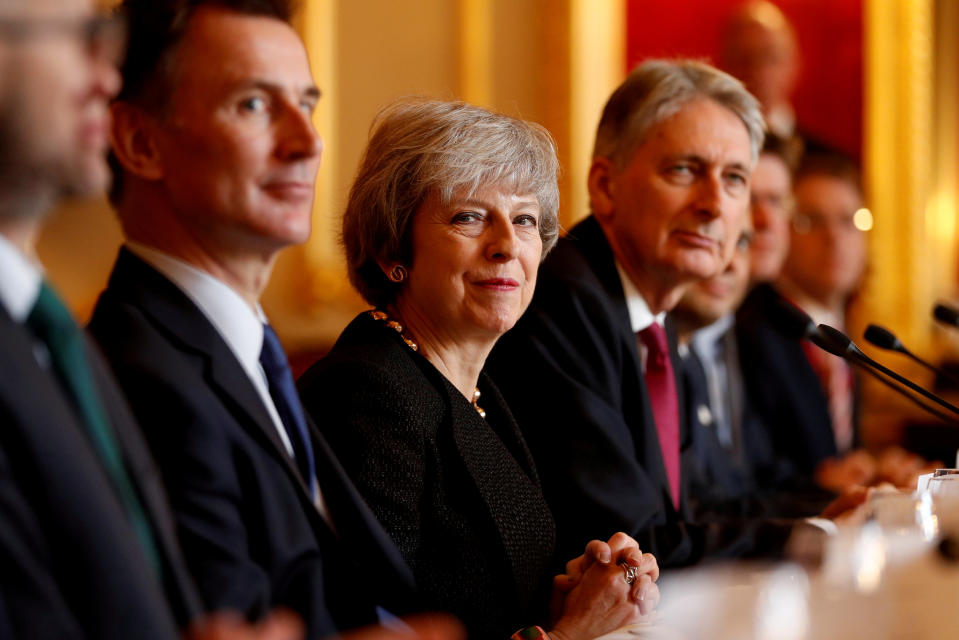May and Hammond in desperate bid to sell Brexit deal to unions and big business

UK prime minister Theresa May and chancellor Philip Hammond are tag teaming on Thursday to try and get business leaders and worker representatives — the unions — on board with May’s Brexit deal.
Hammond will say in a speech to the World Economic Forum in Davos, Switzerland later that the UK “is a great place to do business” and that Britain is “determined… to make sure it remains that way” after it leaves the European Union.
Meanwhile, May will be speaking to workers’ unions — Unison, the TUC, Unite, the GMB — to try and drum up support for her failed deal.
Last week, May suffered a devastating defeat to push through her Brexit deal in parliament. However, the following day, her government survived a no-confidence vote, meaning whilst no-one liked her deal, most were keen to keep her and her cabinet in power to get a deal done.
Since then, May has tried to win over support from Tory Brexiteer politicians and Northern Ireland’s DUP, who lend support to her government to push through her proposals, by changing or amending “backstop” plans for the Irish border. That backstop plan is an “insurance policy” in the Brexit deal that is intended to confirm that there will be no return to a visible border between Northern Ireland and the Irish Republic after Britain leaves the EU.
However, the EU’s chief Brexit negotiator Michel Barnier said on Wednesday that he wasn’t interested in a “Plan B” from May, which suggests she will either have to try and break the political deadlock by re-trying to gain support for the existing deal or delay Brexit to restart talks with the bloc again.
What do banks and businesses think?
The event in Davos is used as a platform by the world’s most powerful people to deliver their company messages as well as muse on what concerns them the most and where opportunities lie. The worst case scenario for businesses and the economy is a no-deal Brexit — the UK crashing out of the bloc without a deal. That would mean all rules and regulations that tied the UK and EU together would cease to exist without an infrastructure in place.
On Wednesday, the boss of the industry lobby group CBI, which represents 190,000 businesses in Britain, Carolyn Fairbairn warned leaders in Davos that a no-deal Brexit wouldn’t just rupture the UK economy, the damage could spread far beyond the UK. IMF chief Christine Lagarde also reiterated previous forecasts that a no-deal Brexit is a threat to the global economy. The Bank of England governor Mark Carney has previously said that a no-deal Brexit will be worse than the global financial crisis.
There is a long list of companies and independent think tanks that have continually voiced concerns over Brexit and, in particular, a no-deal Brexit. Banks in particular have been putting together contingency plans for a disorderly exit and some have started to execute those — including moving or expanding operations to another EU member state instead of Britain as well as curbing hiring or investment in the UK.
The BOE’s Carney said previously that while banks are ready for an Armageddon-style meltdown, businesses are totally unprepared.

 Yahoo Finance
Yahoo Finance 
